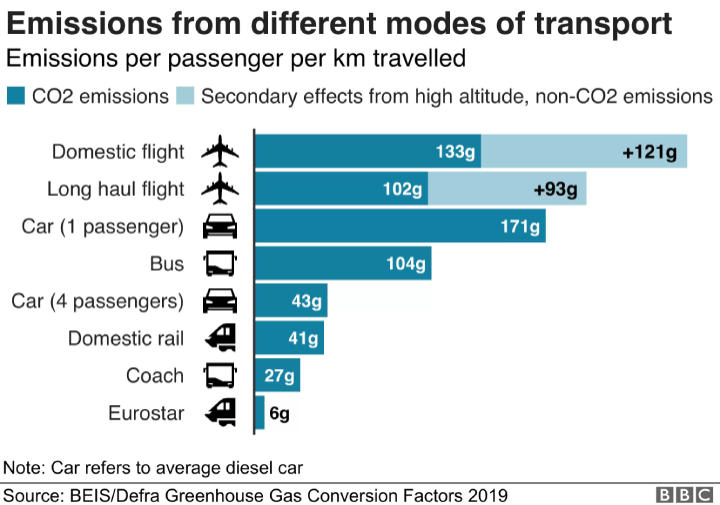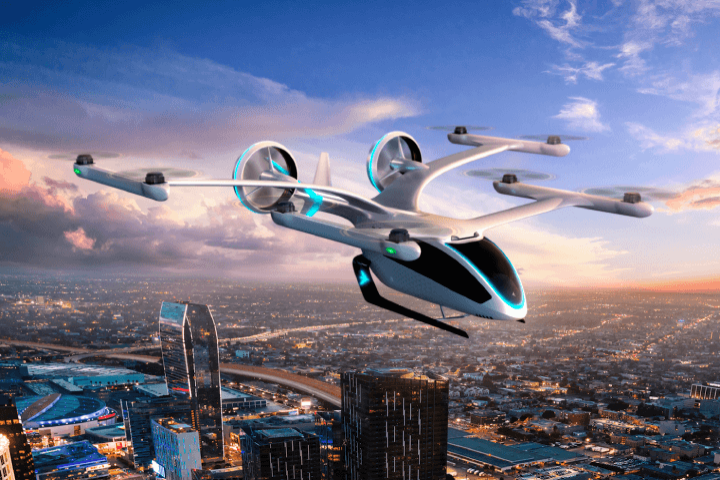Eve Air Mobility's Electric Aircraft: The Future of Aviation
In The News | 29-06-2023 | By Robin Mitchell
As electric air vehicle, start-up Eve Air Mobility takes potential orders for its EV aircraft, many are looking at how this could usher in a new era of air travel. However, the physical challenges faced by aircraft and electrical systems may see their deployment restricted to small aircraft. Why are many looking to replace current aircraft with EV varieties, what did Eve Air Mobility announce, and why will future aircraft unlikely be EVs?
Why are many looking to replace current aircraft with EV varieties?
There is no doubt that of all transportation methods, aviation is by far the quickest and most convenient. The ability to travel halfway across the globe in a matter of hours allows for short travel times between continents as well as enabling fast worldwide delivery. But while aviation has certainly transformed modern logistics, there are some that see aviation as a major problem for the ongoing climate crises.
When compared to all other forms of transportation, aircraft typically rank as the highest source of greenhouse emissions, and this is especially true for short-haul domestic flights. In fact, the difference in generated emissions between aeroplanes and trains can be around 5 times, with electric trains being significantly greater.
However, due to the importance of modern aircraft in logistics, simply banning their existence is a physical impossibility. So, engineers are instead exploring other options to keep planes in the air for the foreseeable future.

One solution to fighting against emissions has been to use carbon-neutral fuels such as hydrogen or biofuels. While this solution would certainly reduce emissions, the vast amount of fuel needed would see large areas of arable farmland dedicated to fuel production, which would massively impact the environment and food production.
Another solution is to make aircraft entirely electric, thereby eliminating the need for fuel in the first place. As electric cars slowly gain in popularity, improvements in battery and energy technologies are making it possible to make aircraft powered by electricity. If that electricity is generated via renewable sources, an EV plane could fly, producing zero emissions from the generation of energy to its usage.
Eve Air Mobility announces potential orders of its EV Air Taxi
Recently, Eve Air Mobility, a start-up manufacturer of electric planes, has announced three potential orders which would see a total of 150 aircraft sold to customers. When considering the other orders that have been booked by other customers, Eve Air Mobility will have a total of 2770 orders for its electric aircraft, presenting a real opportunity for the EV aircraft industry. The order of electric aircraft would not just include the cost of the vehicles but also services and potential maintenance, including battery management, spares and repairs, replacements, and future upgrading for when new hardware is released.

Eve V3 (concept design)
This information was revealed in a recent article by Electrive, a trusted source for electric vehicle news1. It's important to note that while these orders represent a significant step forward for the EV aircraft industry, they are currently letters of intent, meaning that the actual transactions are yet to take place.
However, many of these orders placed have been letters of intent as opposed to actual transactions, meaning that Eve Air Mobility will need to be able to prove itself before being purchased by interested parties. It should also be noted that as Eve Air Mobility is yet to produce a real aircraft, there is no guarantee that such air taxis will be manufactured.
In a recent press release, Eve Air Mobility announced its partnership with Nordic Aviation Capital (NAC), a global leader in regional aircraft leasing. This partnership aims to promote the electric vertical take-off and landing (eVTOL) aircraft through optimised leasing strategies2. This collaboration not only strengthens Eve Air Mobility's position in the market but also highlights the growing acceptance and demand for eVTOL aircraft in the aviation industry.
Schematics and simulations show the potential aircraft produces 90% less noise compared to equivalent helicopters, designed with 100km of range, six times lower cost than helicopters per seat, and designed to operate over thousands of flights. Furthermore, it is hoped that Eve Air Mobility will provide urban environments with a practical air taxi service, with automation helping to increase passenger count.
In a recent article by Electrive, it was revealed that Nordic Aviation has placed a fixed order for 15 units from Eve Air, with the potential for 15 more. Furthermore, Eve Air has signed a letter of intent with Widerøe Zero for up to 50 eVOTLs and with Voar Aviation for 70. This increases Eve Air Mobility’s potential order book to a total of up to 2,770 eVOTLs1. These partnerships not only signify the growing interest in electric air taxis but also demonstrate the commitment of these companies to sustainable aviation.
Why will future aircraft unlikely be based on EV technologies?
Despite the potential orders that Eve Air Mobility has, future aircraft will unlikely ever use electricity as their method of propulsion. Over short distances, an electric aircraft can make sense, as electric systems are easier to maintain, involve fewer risks with refuelling and maintenance, and are cheaper to deploy. However, when scaling up such aircraft to the size of those used to carry passengers and cargo across continents, EVs make less sense.
The primary reason for this is that, unlike jet fuel, batteries do not reduce their weight as they are used, meaning that planes cannot take advantage of increasing efficiency as they travel. The second reason why batteries are problematic in aircraft is their energy density compared to jet fuel. Generally speaking, jet fuel has 50 times more energy density than the best batteries commercially available, meaning that a substantial amount of the weight of an electric aircraft would be in batteries for any given range.
Electric aircraft may work for small taxis going short distances, but they will undoubtedly consume far more energy than their fossil-fuel counterparts. Furthermore, if these electric aircraft do not source their energy from renewable sources, then they will not only contribute to emissions but likely more than those using standard aircraft fuels.
References
- Eve Air announces 3 potential global orders over 150 eVTOL - electrive.com. https://www.electrive.com/2023/06/21/eve-air-announces-3-potential-global-orders-over-150-evtol/
- Eve Air Mobility and Nordic Aviation Capital Sign Letter of Intent for up to 30 eVTOLs. https://ir.eveairmobility.com/news-events/press-releases/detail/37/eve-air-mobility-and-nordic-aviation-capital-sign-letter

